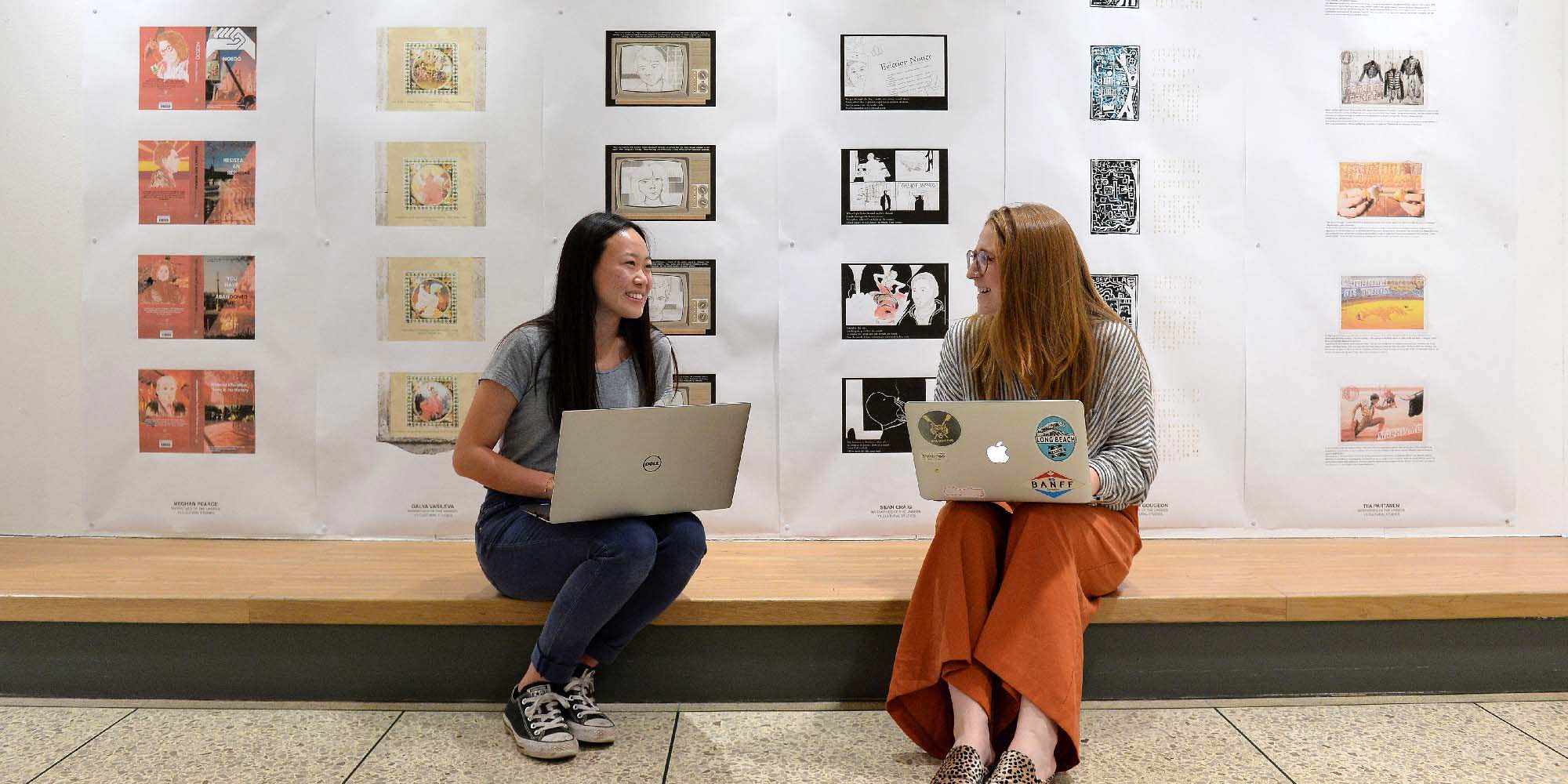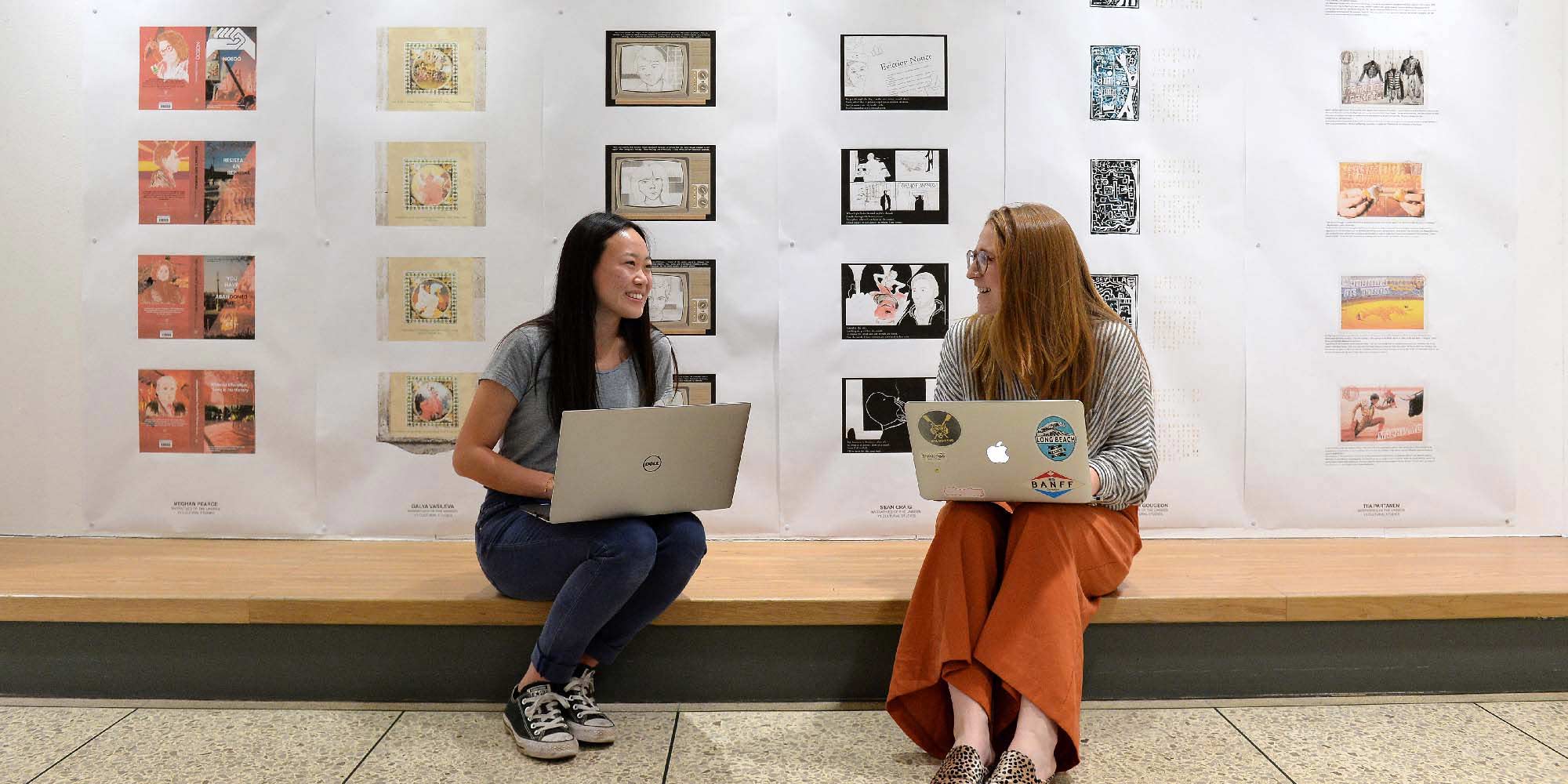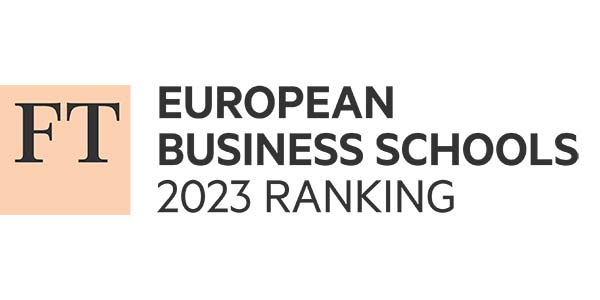MSc Social Innovation & Entrepreneurship
ApplyKey facts
- Start date: Sep
- Accreditation: triple-accredited business school – AACSB, EQUIS & AMBA
- Study mode and duration: 12 months full-time; 24 months part-time
-
Small Business Charter Award: in recognition of our commitment to supporting student entrepreneurship and SMEs
Study with us
- combine theoretical knowledge with practical skills
- study a practical, career-focused programme
- participate in entrepreneurship and innovation initiatives
- get involved with Social Impact Projects, allowing you to take your theoretical knowledge and apply this learning through real-world experience in the field
Why this course
The MSc Social Innovation & Entrepreneurship is embedded in a department which is passionate about supporting students who are dedicated to social and environmental change.
The Hunter Centre for Entrepreneurship hosts the Socially Progressive Innovation and Entrepreneurship (SPIE) Research Cluster. SPIE's aim is to promote knowledge exchange and share new methodologies for socially progressive research and entrepreneurship, prompting trans-disciplinary research across real-world contexts.
Social innovation is concerned with ideas that address unmet social needs. Socially innovative ideas include restorative justice, hospices, kindergartens, distance learning and traffic calming (Mulgan et al., 2007), amongst others. These ideas are usually brought to fruition through an entrepreneurial process, which is concerned with turning innovations into viable and sustainable business models.
Never before has social innovation and entrepreneurship been so central to society: climate change, the threat of pandemics, increase in world population and poverty are only some of the mega-trends that require novel solutions and business models to implement them.
The United Nations Sustainable Development Goals stem from a global urge to address such issues. In tandem with the latter, research in this area has grown significantly in recent years. This is an important area of research, practice and teaching.


What you'll study
The curriculum of the MSc Social Innovation & Entrepreneurship is shaped so that you have space to explore contemporary social and sustainability issues (e.g. Issues and Trends in Entrepreneurship; Social Entrepreneurship). The programme features practical classes and labs within which you work on creative problem solving for local and national businesses, as well as working on issues of global interest (Creativity and Venture Planning; Inclusive Strategy Lab and Global Innovation Lab).
You're also trained on core areas of the business venturing content and processes, such as in Mindset Lab, Entrepreneurial Finance and Entrepreneurial Management and Leadership. The programme concludes with an individual summer project for a social enterprise.
Classes in semester 1 cover key elements of entrepreneurship and are shared with students on the MSc Entrepreneurship, Innovation & Technology. It's possible to swap between programmes at the start of semester 2, based on your preferences and discussions with tutors.
Social Impact Project
In semester 3 you will be able to work closely with an organisation to conduct voluntary work and/or project fieldwork to better their understanding and collect data for their project.
In addition to learning through fieldwork, you will also attend and participate in Social Enterprise & Impact seminar events, which will be hosted by Hunter Centre for Entrepreneurship and open to the community.
Guest lectures
Visiting professors will be an integral part of the programme. Confirmed speakers for 2021-22 include:
- Susan Aktemel - Executive Director, Homes for Good
- Sarah Deas - Non-Executive Director. Trustee, Wellbeing Economy Alliance
- Irene Graham - CEO, ScaleUp Institute
- Dr Iain MacRitchie - Social Entrepreneur & Chair, MCR Pathways
- Maggie O' Carroll - Chief Executive, The Women's Organisation
Triple-accredited business school
Strathclyde Business School
Strathclyde Business School was founded in 1948 and is a pioneering, internationally renowned academic organisation with a reputation for research excellence.
One of four faculties forming the University of Strathclyde, SBS is a triple-accredited business school (AACSB, EQUIS and AMBA) and was the first business school in Scotland to achieve this accolade in 2004. The Business School is home to seven subject departments and a number of specialist centres, all of which collaborate to provide a dynamic, fully-rounded and varied programme of specialist and cross-disciplinary courses.
Strathclyde Business Network
As a postgraduate student at Strathclyde Business School, you may choose to join the Strathclyde Business Network, a student-led initiative that facilitates interaction with business and industry leaders.
The Network aims to foster knowledge sharing, facilitate discussion and enable networking opportunities with the very best business professional in industry. Every year the Network organises Glasgow Business Summit, which is the first-ever student-led business conference in Scotland and brings together students with leading businesses from across the UK.
Creativity and Venture Planning
This class is important in terms of presenting an introduction for MSc students to the entrepreneurial process, from creative thinking to the development of a new business concept. This class has further thematic additions based on consultation with industry, specifically prototyping and storyboarding.
Mindset Lab
Mindsets are at the core of everything that people think and do. Therefore, if we want to steer entrepreneurial behaviour towards success, we need to start by shaping the mindsets of those who start ventures. From government agencies to investment panels, entrepreneurial mindsets are quickly becoming the buzzword that everyone wants to know about. But what are those mindsets? And when are they a force for good or otherwise?
In this research-based class, you'll be exposed first hand to the daily struggles and successes of early-stage entrepreneurs and will be tasked with assessing their mindsets, how those mindsets are shaped by context and how, in turn, they shape the behaviour of the entrepreneur. You'll take a fascinating journey through the latest academic thinking on mindsets and will apply that thinking to the practice you observe in the entrepreneurs you will be following. Theory and practice will inform each other as you discover the often hidden power of the mind on human fears, goals, failures and achievements.
Issues & Trends in Entrepreneurship, Innovation & Technology
This module provides a firm foundation in scholarly, practitioner and policy perspectives for "mega-trends" in entrepreneurship, innovation and technology. This is a student-driven class, where you'll develop research and presentation skills, and learn about cutting-edge developments such as digital health technology, the sharing economy and social innovation, while also learning how entrepreneurial ecosystems function.
Data Lab
As increasing volumes of data are collected and made available to the public, identifying opportunities through analysis of data is a necessary skill for the contemporary entrepreneur. This course will empower students with a range of different analytic methods and software tools that will allow them to successfully identify high-value data-drive entrepreneurial opportunities.
Strategic Innovation Management
This module is designed to build knowledge of the processes underpinning innovation. The class will provide an introduction to the main concepts and frameworks related to definitions, processes, strategies, organisation and sources of innovation. Towards the end of the class, new trends in innovation, such as social innovation and frugal innovation, will also be covered.
Entrepreneurial Management & Leadership
Entrepreneurial leadership is distinct and different from leadership found in large corporates. (Röschke, 2018). Entrepreneurial leaders tend to be more adept at exploring and exploiting opportunities in the marketplace and dealing with constant change and competition.
This module will help participants better understand their own leadership style and also understand the key characteristics and behaviours of entrepreneurial leaders. Entrepreneurial management shows similarities to management functions in established organisations – strategic planning, marketing, etc. However, is it really necessary in a start-up situation? This module will explore the importance of entrepreneurial management and how start-ups and SMEs can benefit from having a programmed approach to growing the business.
Entrepreneurial Finance
This class addresses how startups and small businesses source and manage finances. Finance is a core function within most organisations and is especially pivotal for startups and SMEs that need to carefully navigate to survive and grow. The class is a core Semester 2 module. It builds on Semester 1 modules that address the foundational elements required to develop a promising new business concept (e.g. Creativity and New Venture Planning, Innovation, Entrepreneurial Mindset, etc.) by bringing in the finance toolkit required to make a successful business out of a good idea.
Social Entrepreneurship (10 credits)
There is a growth in the number of entrepreneurs starting businesses with social and environmental purposes. This module examines ideas and practices for addressing social needs. These include social enterprises, collaborative innovation networks, hubs, digital platforms, and support intermediaries. The module is centred around how students can start their own social entrepreneurship projects. The module will consist of a selection of presentations and discussions around social innovation and social entrepreneurship.
Social Impact Strategy Lab
The educational aim of this class is for students to understand how they can enact social impact through organisational strategy. The purpose of this class to develop students into organisational leaders who approach strategy with a social lens. Where social impact is not simply a CSR exercise but is embedded in the organisational outcomes and activities.
Global Innovation Lab
The class responds to the need for developing skills for innovation at a global scale when social needs and sustainability-driven priorities with potential for impact are considered by organisations. It seeks to create the space for participants to gain a rich, informed view about underlying challenges at global scale, prototype alternative solutions via high level scenarios and create routes into impact through supporting a real organisation. It also seeks to adopt an intensely collaborative way of working, as a creative, innovation driven based method that informs its logic and approach, and supports the outcomes sought.
Social Impact Project
This module replaces the traditional, academic dissertation with a final 'capstone' module that marries a student's academic knowledge with the ability to put this into practice to create a positive difference in a local social enterprise and/or provide strategic support for a new social innovation. Whilst still as rigorous as a dissertation, the summer project will provide a chance for students to provide fieldwork within the sector and communicate their findings to wider groups of stakeholders. All of which are key attributes that employers and governments are looking for in this field. Each student will work closely with an organisation(s) to conduct voluntary work and/or project fieldwork to better their understanding and collect data for their project(s).
In addition to learning through fieldwork, you will also attend and participate in Social Enterprise & Impact seminar events, which will be hosted by Hunter Centre for Entrepreneurship and open to the community.
- Days 1and 2: The first two half days occur at the beginning of the project. These launch the module for the students and clients, as well as provide an update on the status of Social Innovation and Enterprise in the Scottish Ecosystem, and Key Trends and Challenges that businesses face - from the businesses themselves.
- Day 3 and 4: marks the half way point for the module. Here, we invite international guests and stakeholder workshops to a) increase awareness of key trends in the area b) invite the public to be involved in our work at the University c) provide support and workshops for our Social Enterprise clients and the Industry and d) provide the students with a chance to collect data and show a draft of their work to-date.
- Day 5: near the end of their project, students will create their own Social Impact event, where they will showcase their work and 'give something back' to the local business community.
- Day 6: end of the module, this will be a final celebration event, with final deliverables by the students in combination with public, academic events on social enterprise and impact.
Chat to a student ambassador
Want to know more about what it’s like to be a Strathclyde Business School student at the University of Strathclyde? A selection of our current students are here to help!
Our Unibuddy ambassadors can answer all the questions you may have about their course experiences and studying at Strathclyde, along with offering insight into life in Glasgow and Scotland.
Chat now!Learning & teaching
The bulk of the taught classes run in semesters 1 and 2. However, there will still be classes and workshops running in semester 3, so you'll be required to be present in Glasgow throughout semester three. Classes will be taught through a combination of lectures, workshops, lab sessions and practical activities. The Social Impact Project is undertaken in Glasgow from May to September. There will also be numerous networking events throughout the year.
Assessment
Assessments methods vary by class. Typical assessment will be through a combination of group assignments, individual assignments and exams. Exams will take place at the end of each semester in December and April/May.
Entry requirements
| Academic requirements | Minimum second-class honours degree or overseas equivalent (view the entry requirements for your country) in any subject. Students whose first language is not English must have a minimum of 6.5 IELTS score, with no individual score lower than 5.5. Get more information about the English language requirements for studying at Strathclyde. |
|---|
Pre-Masters preparation course
The Pre-Masters Programme is a preparation course held at the University of Strathclyde International Study Centre, for international students (non-UK/Ireland) who do not meet the academic entry requirements for a Masters degree at University of Strathclyde.
Upon successful completion, you'll be able to progress to this degree course at the University of Strathclyde.
Please note: Previous Maths & English qualifications and your undergraduate degree must meet GTCS minimum entry requirements as well as the pre-Masters course and an interview will be conducted before an offer can be made.
Strathclyde Inspire
At Strathclyde, we live and breathe entrepreneurship. The University of Strathclyde started life as a place of useful learning, an institution that wanted to make a difference through dong things innovatively, boldly and socially oriented; this founding mission has never been more relevant. Today, we continue to nurture generations of influencers, innovators and industry leaders, empowering our staff, students and alumni to embrace entrepreneurship, transforming their own lives and the lives of others.
Strathclyde Inspire supports and encourages entrepreneurship in all its forms, so whether you want to be more entrepreneurial in your approach to life, business and society, have an idea for a business, or are considering commercialising your research, we will support you at every stage of your journey.
Strathclyde InspireFees & funding
All fees quoted are for full-time courses and per academic year unless stated otherwise.
Fees may be subject to updates to maintain accuracy. Tuition fees will be notified in your offer letter.
All fees are in £ sterling, unless otherwise stated, and may be subject to revision.
Annual revision of fees
Students on programmes of study of more than one year (or studying standalone modules) should be aware that tuition fees are revised annually and may increase in subsequent years of study. Annual increases will generally reflect UK inflation rates and increases to programme delivery costs.
| Scotland | £16,650 |
|---|---|
| England, Wales & Northern Ireland | £16,650 |
| International | £28,250 |
| Additional costs | Course materialsMost modules require students to buy textbooks, assuming each module has a set textbook and 30% of these are available as free ebooks then students will be required to buy around 9 books around £40 - £50 each therefore we would recommend allowing around £400 for books. Final project print and binding. Graduation gown hire Visa & immigrationInternational students may have associated visa and immigration costs. Please see student visa guidance for more information. |
| Available scholarships | Take a look at our scholarships search for funding opportunities. |
Please note: the fees shown are annual and may be subject to an increase each year. Find out more about fees.
How can I fund my course?
Scottish postgraduate students
Scottish postgraduate students may be able to apply for support from the Student Awards Agency Scotland (SAAS). The support is in the form of a tuition fee loan and for eligible students, a living cost loan. Find out more about the support and how to apply.
Don’t forget to check our scholarship search for more help with fees and funding.
Students coming from England
Students ordinarily resident in England may be to apply for postgraduate support from Student Finance England. The support is a loan of up to £10,280 which can be used for both tuition fees and living costs. Find out more about the support and how to apply.
Don’t forget to check our scholarship search for more help with fees and funding.
Students coming from Wales
Students ordinarily resident in Wales may be to apply for postgraduate support from Student Finance Wales. The support is a loan of up to £10,280 which can be used for both tuition fees and living costs. Find out more about the support and how to apply.
Don’t forget to check our scholarship search for more help with fees and funding.
Students coming from Northern Ireland
Postgraduate students who are ordinarily resident in Northern Ireland may be able to apply for support from Student Finance Northern Ireland. The support is a tuition fee loan of up to £5,500. Find out more about the support and how to apply.
Don’t forget to check our scholarship search for more help with fees and funding.
International students
We've a large range of scholarships available to help you fund your studies. Check our scholarship search for more help with fees and funding.
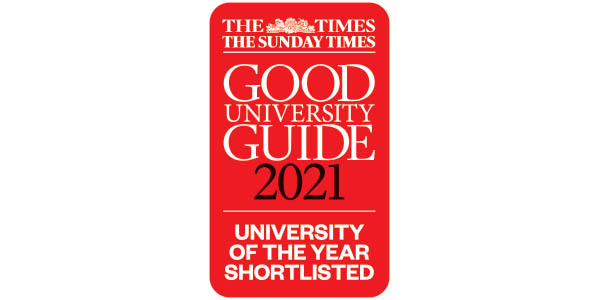
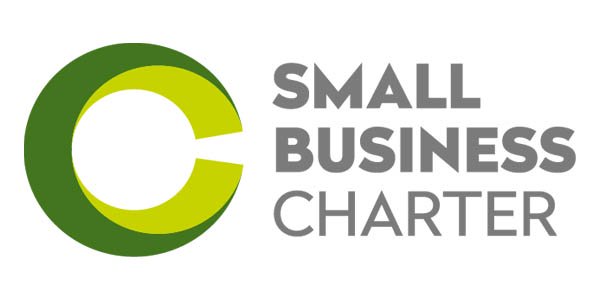
International students
We've a thriving international community with students coming here to study from over 140 countries across the world. Find out all you need to know about studying in Glasgow at Strathclyde and hear from students about their experiences.
Visit our international students' section
Glasgow is Scotland's biggest & most cosmopolitan city
Our campus is based right in the very heart of Glasgow. We're in the city centre, next to the Merchant City, both of which are great locations for sightseeing, shopping and socialising alongside your studies.
Life in Glasgow
Careers
As we emerge from the Covid-19 pandemic, many governments (including the Scottish Government) have pledged an economic recovery centred on sustainability, fairness and wellbeing. Going forward, many employment opportunities are expected to emerge in the area of sustainability and socially progressive economic development. Having a firm-level, hands on understanding of such matters will give you a competitive advantage.
You may find employment with large corporates who have socially progressive projects or divisions. (One example is EY foundation, which works with young people from disadvantaged backgrounds to create skills leading to employment).
Employment may be sought with support organisations, think-tanks and policy organisations working in the areas of social entrepreneurship of social innovation. (One example is Social Enterprise UK)
You may also take this programme because if you intend to start a social enterprise, or already have started a social enterprise but feel you would benefit from focused training.
This MSc will also be an asset to individuals already working or wishing to work for NGOs and public sectors organisations for social development.
Apply
For information and guidance on the application process, take a look at our How to Apply web page.
Contact us
SBS Postgraduate Admissions
Telephone: +44 (0)141 553 6105 / +44 (0)141 553 6116
Email: sbs.admissions@strath.ac.uk
Strathclyde Business School, University of Strathclyde
199 Cathedral Street
Glasgow
G4 0QU
